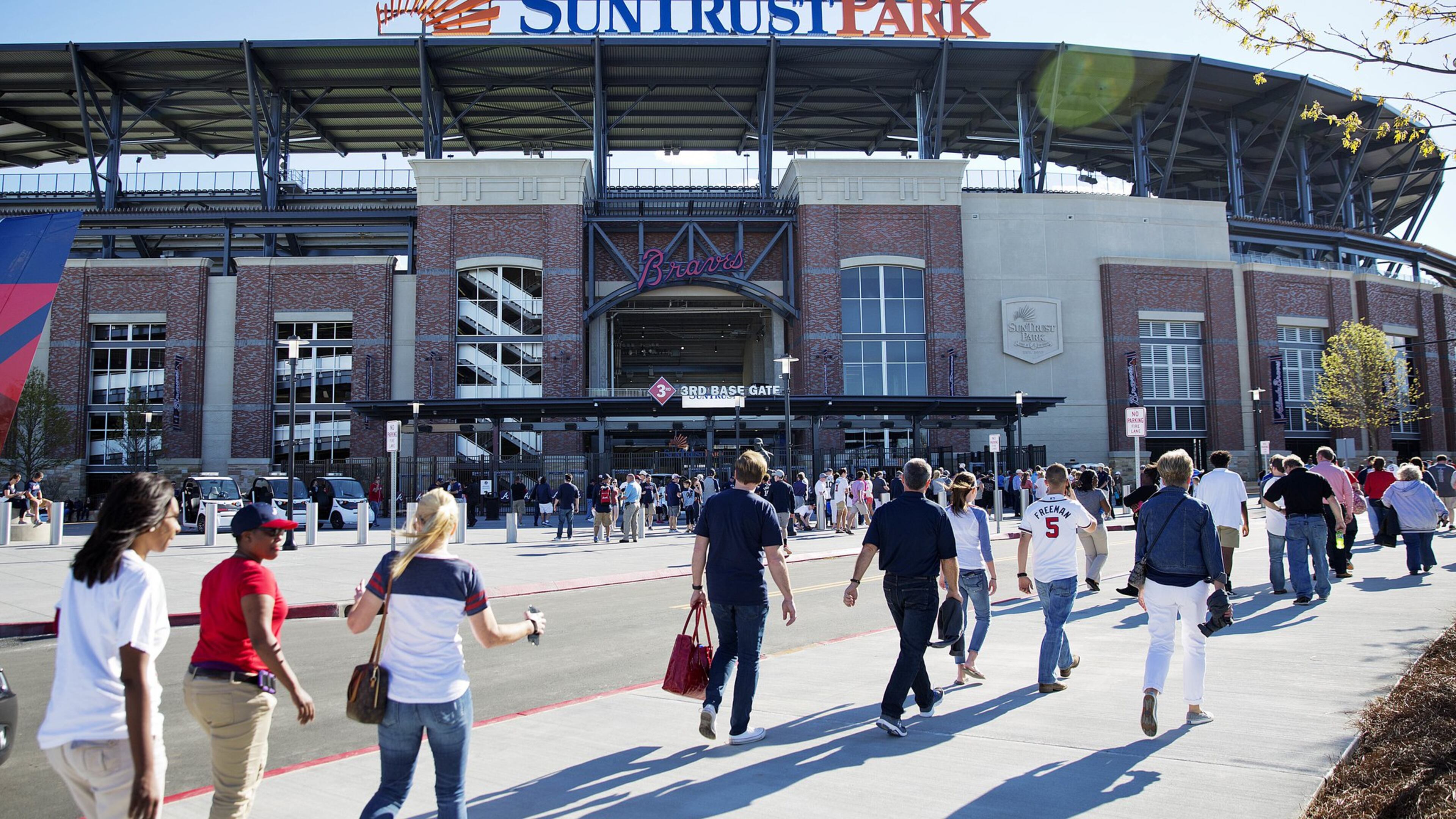SunTrust Park ups Braves’ financial game

The move to SunTrust Park is paying off for the Braves, according to financial results disclosed Wednesday.
The Braves brought in revenue of $176 million in the April-through-June quarter, a 34 percent increase from $131 million in the same period last year, team owner Liberty Media said in its quarterly financial report.
Expenses also were up sharply, but the Braves’ operating profit before depreciation and amortization — a key measure of a pro sports franchise’s economic performance — rose to $27 million for the quarter, compared with $12 million in the same period last year.
“The increase in Braves revenue in the quarter was primarily attributable to … the Braves’ move to their new ballpark, SunTrust Park, and improved on-field performance,” Liberty Media said. “Ticket sales, concessions, corporate sales, suites and premium seat fees all increased during the second quarter.”
Liberty said the revenue boost was “partially offset by increased costs associated with baseball and ballpark operations.”
The revenue increase would have been larger if not for a scheduling disparity. The Braves had 40 home games in the April-through-June period this season, versus 44 in the same period last year at Turner Field, Liberty Media CEO Greg Maffei pointed out on a conference call Wednesday with Wall Street analysts.
He said the team’s average home attendance had increased 36 percent through Monday, compared with the same point last season.
After depreciation and amortization, the Braves showed a loss of $3 million for the second quarter. Liberty cited “increased depreciation and amortization expense due to an increase in property and equipment to support the development of the Braves mixed-use facility that surrounds SunTrust Park.”
The mixed-use development, The Battery Atlanta, “is seeing strong demand,” Maffei said.
“On the retail side, 70 percent of it is leased, with 30 percent of the outlets open,” he said. “On the residential units, we have 80 percent of them leased, with 60 percent already occupied. The remainder of the development is on time and on budget.”
Despite the sharp increase in revenue, the Braves recently trimmed payroll with trades of two veterans, starting pitcher Jaime Garcia and utility player Sean Rodriguez, for low-level prospects. The deals will save the Braves a total of about $12 million this year and next.
It remains to be seen how, when or whether the Braves will reinvest that money into the on-field product.
While the stadium and adjacent development are driving revenue higher, the organization has taken on considerable debt for construction.
Liberty Media chief financial officer Mark Carleton said Wednesday that the Braves carried debt of $511 million as of June 30.
The team’s debt increased by $91 million in the second quarter “primarily as a result of additional borrowings for funding the ballpark and mixed-use development,” Liberty said.
As of June 30, approximately $692 million had been spent on the stadium, “of which approximately $390 million was provided by Cobb County and related entities and $302 million provided by the Braves,” Liberty said. In addition, approximately $374 million had been spent on the mixed-use development, with the Braves responsible for $338 million and joint-venture partners responsible for the rest.
Liberty, a Colorado-based conglomerate controlled by billionaire chairman John Malone, did not address the Braves’ future spending plans Wednesday.
But in an investor conference at SunTrust Park last month, Maffei said: “We expect the Braves to continue to operate with the same financial discipline and prudence that they have historically, despite the upgraded new facilities. … As we get more cash flows from The Battery and the new ballpark, we expect to deploy cash for normal business operations, potentially including paying down debt and investing in the team to enhance baseball operations.”


